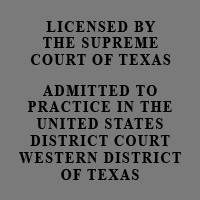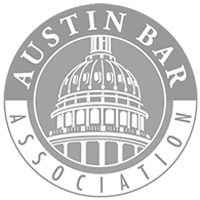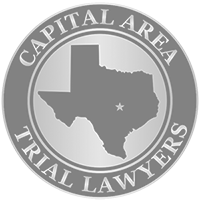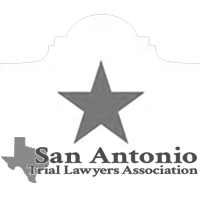Report Hospice Fraud: Hospice Fraud Whistleblowers That Properly Report Hospice Fraud Schemes Can Earn Large Rewards By Hospice Fraud Qui Tam Lawyer Jason S. Coomer
Whistleblowers are needed to step forward and blow the whistle on large hospice care providers that are committing hospice fraud. If you are aware of a large hospice care provider or other health care company that is commiting hospice fraud, please feel free to contact Hospice Fraud Whistleblower Lawyer, Jason S. Coomer, via e-mail or via our online submission form for a free review of a potential Hospice Fraud Whistleblower Reward Lawsuit.
Large Hospice Providers in The Unites States Are Receiving Hundreds of Millions of Dollars in Government Benefits and Some Have Been Committing Hospice Fraud
Hospice fraud is on the rise as many large corporations have tried to increase their profits through false certifications, over billing, and other forms of hospice fraud. Because Medicare, the health program for the elderly and the disabled, automatically pays the vast majority of the bills it receives from companies that possess federally issued supplier numbers, many large companies have learned that hospice fraud is lucrative and is often not detected.
However, there have been several large health care providers that have been made to pay large multimillion dollar fines for hospice fraud lawsuits. These lawsuits include cases against Odyssey Healthcare Inc. and SouthernCare. There are several other hospice fraud lawsuits that are currently pending and large rewards are being offered to professionals, employees, and other whistleblowers that are the first to be able to expose large scale hospice fraud being committed by a large hospice provider. Some of the largest hospice providers in the United States include: Vitas, Gentiva, HCR ManorCare, Amedisys, Aseracare, Hospice of the Valley, Compassionate Care Hospice, Seasons Hospice, Hospice Compassus, Southern Care, Providence, Harden Healthcare, Crossroads Hospice, American Hospice, Tidewell Hospice, Hospice of Palm Beach County, Suncoast Hospice, Community Hospice of Northeast, Hope Hospice & Community Services, and Hospice of the Western Reserve.
Hospice Medicare Fraud Can Occur When A Hospice Care Provider Falsely Certifies or Recertifies Patients That Are Not Eligible For Hospice Benefits
Hospice Care Providers that practice a pattern of enrolling and recertifying non-terminal patients and billing for continuous care that isn't necessary or reasonable can be committing Hospice Medicare Fraud. Other Hospice Care Providers that fraudulently maximize the use of Medicare’s hospice benefit by pressuring its employees to enroll people into hospice who aren’t dying and resist discharging them despite evidence they weren’t deteriorating can also be committing Hospice Medicare Fraud that can be the also be the basis of a Hospice Federal False Claims Act Whistleblower Reward Lawsuit. These Hospice Medicare Fraud Schemes typically have a large health care and hospice provider recruite patients eligible for skilled nursing care for 20 days, for which Medicare pays the entire bill. After the 20 days, when Medicare requires patients pick up a part of the tab, the health care and hospice provider will send the patients to hospice to collect a flat payment from Medicare for each day they are enrolled. In these fraudulent arrangements a patient will typically be referred and re-referred until that patient has received—and Medicare has been billed for—the maximum number of days of skilled nursing care, including rehabilitative therapy, home health care, and hospice care.
By being the first to expose a hospice Medicare fraud scheme, a hospice Medicare fraud whistleblower can receive a substantial reward for properly blowing the whistle on fraudulent hospice care providers.
Hospice Medicare Fraud Is A Growing Problem and Cost
Over the 30 years that Medicare has reimbursed providers for hospice services, it has been praised for giving critical medical and emotional support to dying patients and their families. The Medicare hospice benefit is intended to provide compassionate end of life care to terminally ill patients and not to line the pockets of large hospice providers that are attempting to maximize profits at the expense of taxpayers. More specifically, Medicare provides a benefit meant to cover hospice care for the terminally ill. It covers 24-hour in-home nursing service only during limited crisis periods. When properly used at the very end of a person's life, hospice care can also save the government money by reducing medical treatments and keeping the person comfortable. Hospice patients agree to forgo treatments aimed at prolonging their lives, but can receive pain-relieving medication to ease the symptoms of a terminal illness, as well as attention from nurses, social workers and others.
However, as for profit hospice providers are seeking to maximize their profits, we are seeing more and more use of the hospice Medicare benefit. It is now being used by over a million Medicare patients a year and the numbers are expected to continue to increase. It is estimated that 40% of Medicare beneficiaries now use the hospice benefit before they die. Medicare's bill for hospice care rose to more than $12 billion in 2009 from $2.9 billion in 2000. These numbers are expected to grow as more and more hospice providers seek to maximize their profits.
Although the benefit is intended for patients who have no more than six months to live, 19 percent now receive hospice services for longer, according to the Medicare Payment Advisory Commission, or MedPAC, an independent congressional oversight panel. In 2009, 10 percent of patients remained in hospice beyond seven months. Medicare pays a flat fee ranging from $147 to $856 a day, depending on the level of care, whether a hospice actually provides services or not.
Hospice Fraud Whistleblower Lawsuits Are On The Rise
Health care fraud costs United States Tax Payers large amounts of money through Medicare, Medicaid, and other government health care programs. A critical aspect of the Health Care Fraud problem is that Medicare, the health program for the elderly and the disabled, automatically pays the vast majority of the bills it receives from companies that possess federally issued supplier numbers. Computer and audit systems now in place to detect problems generally focus on over billing and unorthodox medical treatment rather than fraud.
There have been several large health care providers that have been made to pay large multimillion dollar fines for hospice fraud lawsuits. These lawsuits include cases against Odyssey Healthcare Inc. and SouthernCare.
PHILADELPHIA—An indictment was unsealed today charging five nurses in a health care fraud conspiracy arising from their employment at Home Care Hospice Inc. (HCH), a hospice care provider in Philadelphia, between 2005 and 2008 that resulted in a multi-million-dollar fraud on Medicare. Patricia McGill, 64, of Philadelphia, was a registered nurse and served as the director of professional services for HCH. She allegedly authorized and supervised the admission of inappropriate and ineligible patients for hospice services, resulting in approximately $9.32 million in fraudulent claims. She is charged, along with Natalya Shvets, 42, of Southhampton, Pennsylvania Giorgi Oqroshidze, 36, of Philadelphia; Yevgeniya Goltman, 42, of Newtown, Pennsylvania; and Alexsandr Koptyakov, 39, of Bensalem, Pennsylvania, with one count of conspiracy to commit health care fraud and numerous counts of health care fraud. All five defendants were arrested this morning.
HCH was co-owned by Matthew Kolodesh, who is charged separately in an indictment unsealed October 12, 2011, and “A.P.,” the Hospice Director for HCH. HCH was a for-profit business at 1810 Grant Avenue, and later 2801 Grant Avenue, in Philadelphia that provided hospice services for patients at nursing homes, hospitals, and private residences. According to the indictment, announced by United States Attorney Zane David Memeger, McGill authorized nursing staff and supervisors, including her co-defendants, to fabricate and falsify documents in support of hospice care for patients who were not eligible for hospice care, or for a higher, more costly level of care than was actually provided to the patients. Between January 2005 and December 2008, approximately $9,328,000 in fraudulent claims for inappropriate patients were submitted to Medicare as authorized by AP and McGill. Defendants Shvets, Oqroshidze, Goltman, and Koptyakov created fraudulent nursing notes for approximately 150 patients indicating hospice services were provided for patients, when, in reality, they were not.
In February 2007, HCH was notified that it was subject to a claims review audit. According to the indictment, in anticipation of this audit, McGill assisted A.P. in reviewing patient charts, sanctioning false documentation by the nursing staff, and authorizing the alteration of charts. In September 2007, HCH was notified that it had exceeded its cap for Medicare reimbursement and would have to repay $2,625,047 to the government program. At that point, A.P. and McGill directed staff to review patient files and discharge hospice patients. This resulted in a mass discharge of patients. In one month, 79 hospice patients were discharged in October 2007 and a total of 128 discharged by January 2008, some of whom had been ineligible for hospice or inappropriately maintained on hospice service in excess of six months. Some of the patients discharged were shifted to another hospice business owned by Kolodesh. In the spring of 2008, approximately 20 percent of the discharged patients were placed back on hospice service at HCH with McGill’s knowledge. McGill is charged in 14 counts; Shvets is charged in eight counts; Oqroshidze is charged in seven counts; Goltman is charged in four counts; and Koptykov is charged in eight counts.
If convicted of all charges, McGill faces a potential advisory sentencing guideline range of 108 to 135 months in prison, a fine of up to $150,000, and a $1400 special assessment; Shvets, Goltman, and Koptykov each face a potential advisory sentencing guideline range of 27 to 33 months in prison, a fine of up to $60,000, and an $800 special assessment; Oqroshidze faces a potential advisory sentencing guideline range of 21 to 27 months in prison, a fine of up to $50,000, and a $700 special assessment.
The case was investigated by the Federal Bureau of Investigation and the Department of Health and Human Services-Office of Inspector General. It is being prosecuted by Assistant United States Attorney Suzanne B. Ercole and Trial Attorney Margaret Vierbuchen of the Organized Crime and Gang Section in the Justice Department’s Criminal Division.
HOSPICE FRAUD NETS MULTIMILLION DOLLAR RECOVERY
"SouthernCare Inc. and its shareholders have agreed to pay the United States a total of $24.7 million to settle allegations that the Birmingham, Ala.-based company submitted false claims to the government for patients treated at its hospice facilities, the Justice Department announced today. SouthernCare operates approximately 99 locations that provide hospice services in 15 states."
“The Medicare hospice benefit is intended to provide compassionate end of life care to terminally ill patients,” said Gregory G. Katsas, Assistant Attorney General of the Civil Division. “This settlement sends a clear message that the Department of Justice will not allow health care providers to take advantage of beneficiaries in their attempts to game the reimbursement system.”
This settlement results from two qui tam suits filed by two former SouthernCare employees on behalf of the United States. The False Claims Act authorizes private parties to file suit against those who defraud the United States and to receive a share of any recovery. The United States will pay $4.9 million to the individuals who filed the actions against SouthernCare.
“Our investigation showed a pattern and practice to falsely admit patients to hospice care who did not qualify and to bill Medicare for that care. This resulted in taxpayers bearing inappropriate costs. This settlement evidences the Department of Justice’s efforts to both protect the public monies and safeguard Medicare beneficiaries,” said Alice H. Martin, U.S. Attorney for the Northern District of Alabama.
http://birmingham.fbi.gov/dojpressrel/pressrel09/bh011509.htm
Hospice Fraud Whistleblower Lawyer Jason S. Coomer Commonly Works with Hospice Fraud Lawyers, Hospice Fraud Qui Tam Lawyers, and Health Care Fraud Whistleblowers Lawyers Throughout Texas and the United States
As a Hospice Medicare Fraud Whistleblower Lawyer, Jason Coomer works with other powerful qui tam lawyers that handle large governmental fraud cases. He works with San Antonio Hospice Fraud Qui Tam Lawyers, Dallas Hospice Fraud Lawyers, Houston Hospice Health Care Fraud Lawyers, and other Texas Hospice Fraud Qui Tam Lawyers as well as with Hospice Qui Tam Lawyers throughout the nation to blow the whistle on fraud that hurts the United States.
If you are aware of a Health Care Provider, Hospice Provider, Defense Contractor, highway contractor, large health care company, or other large contractor or subcontractor that is defrauding the United States Government out of millions or billions of dollars, contact Hospice Health Care Fraud Qui Tam Lawyer Jason Coomer.
Feel Free to Contact Us with any Questions
Associations




